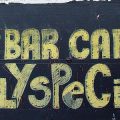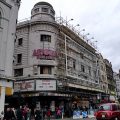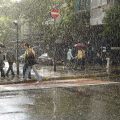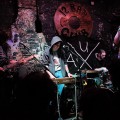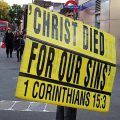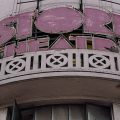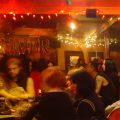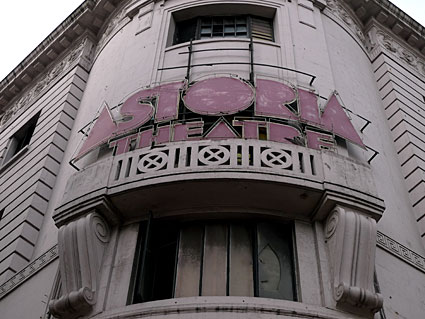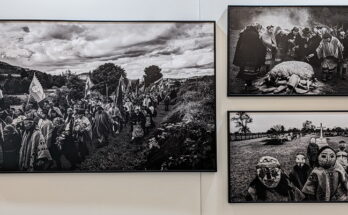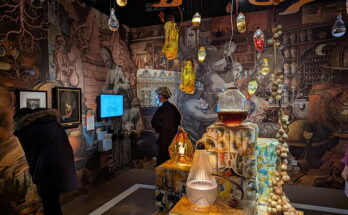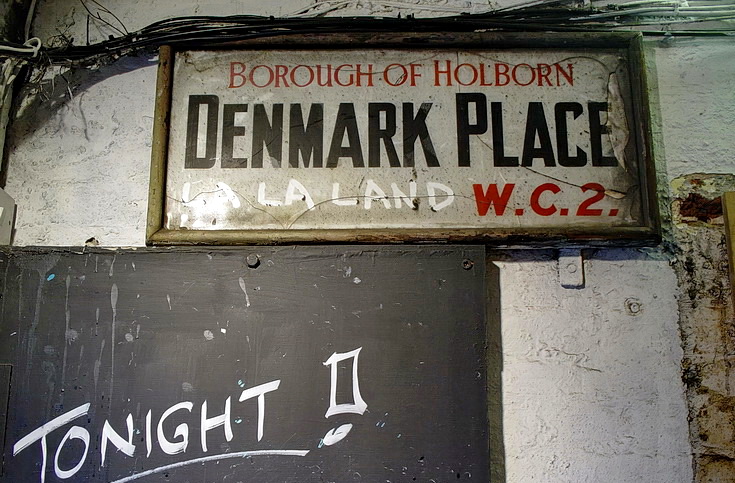
Once the beating heart of the British music industry, Denmark Street – commonly known as Tin Pan Alley – was already long in decline when I took these photos in early 2004.
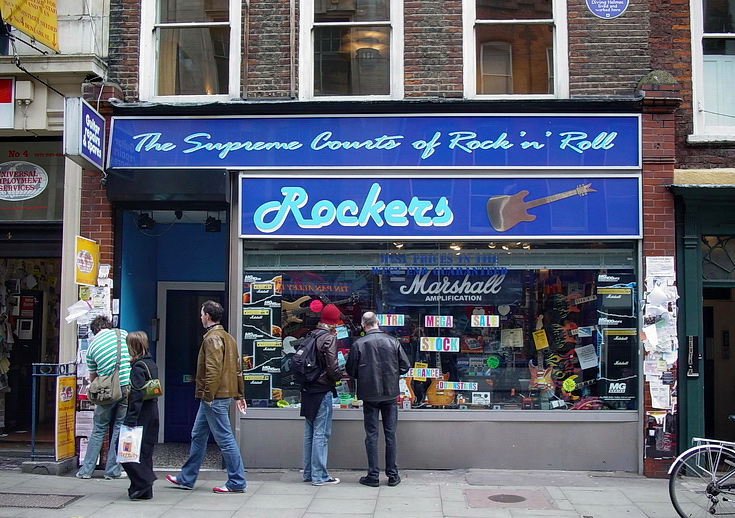
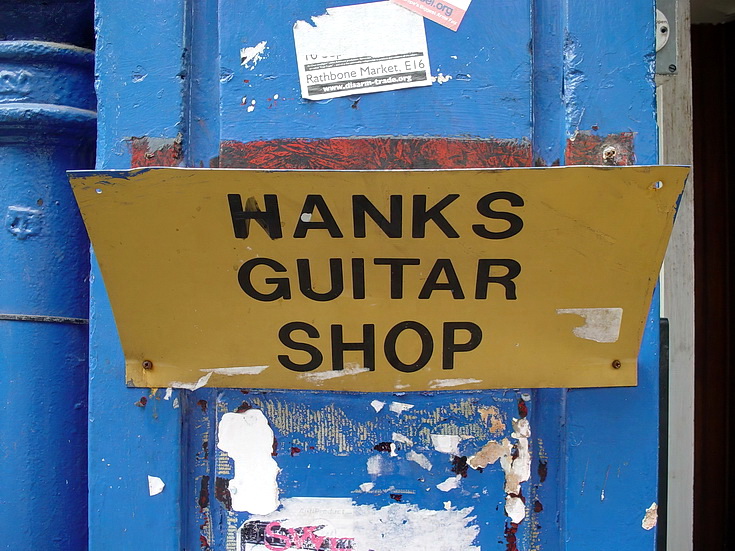
Hanks Guitar Shop is a rare survivor on the street, and is still open today at 27 Denmark Street.
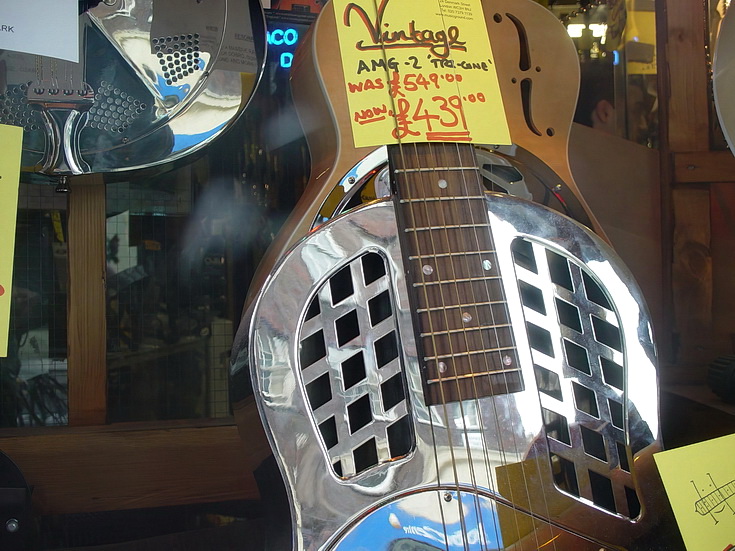
This guitar costs the equivalent of £754 today.
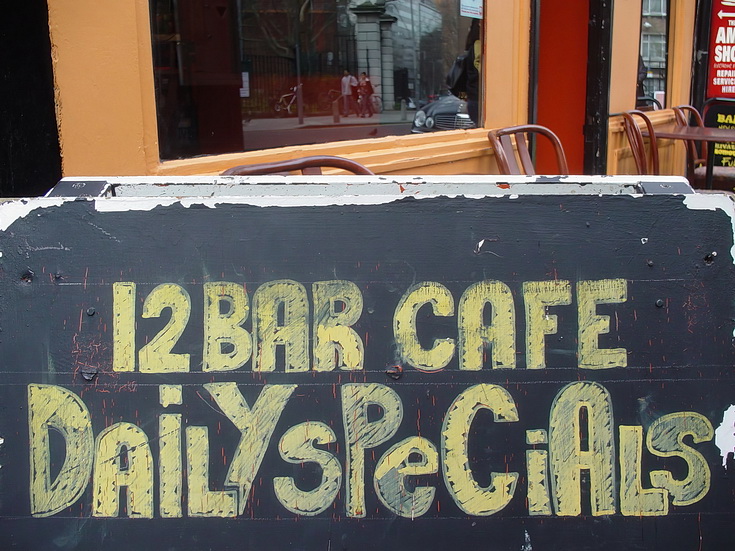
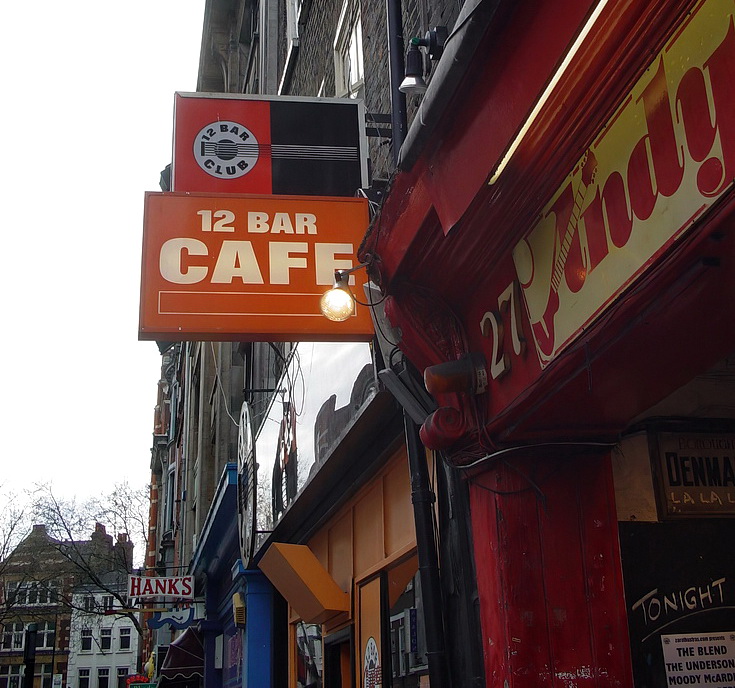
The 12 Bar Club was a superb, no frills grassroots venue, which had hosted performances from the likes of Adele, Martha Wainwright, Joanna Newsom, KT Tunstall , Damien Rice, Regina Spektor, The Libertines, Keane, Seasick Steve and Jamie T.
Scroll down to see photos of the fabulously ramshackle stage.
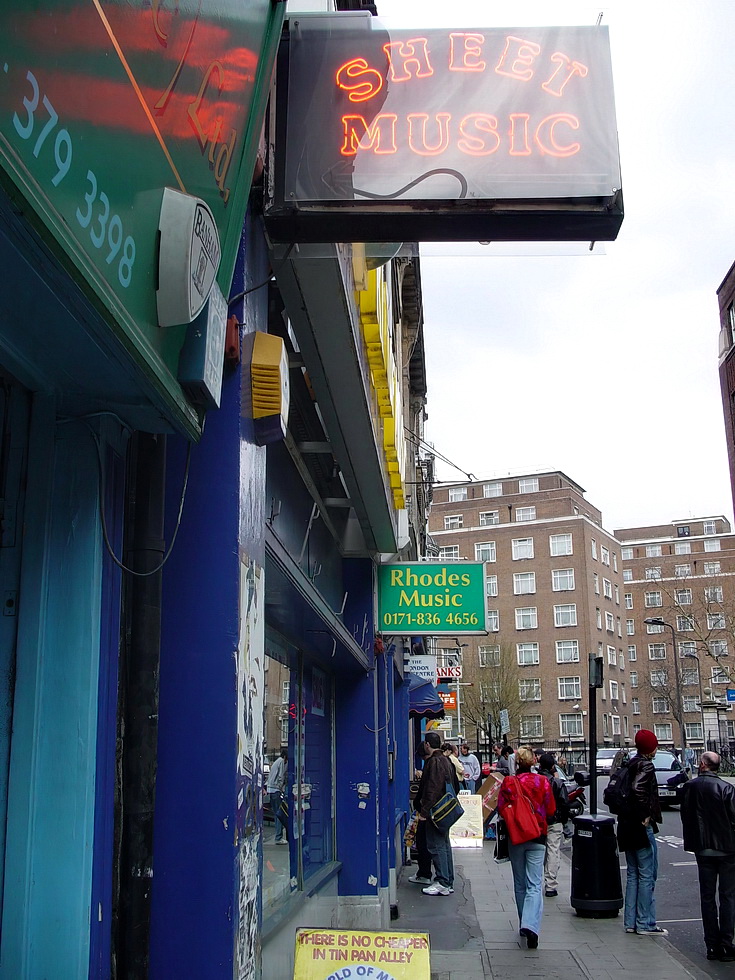
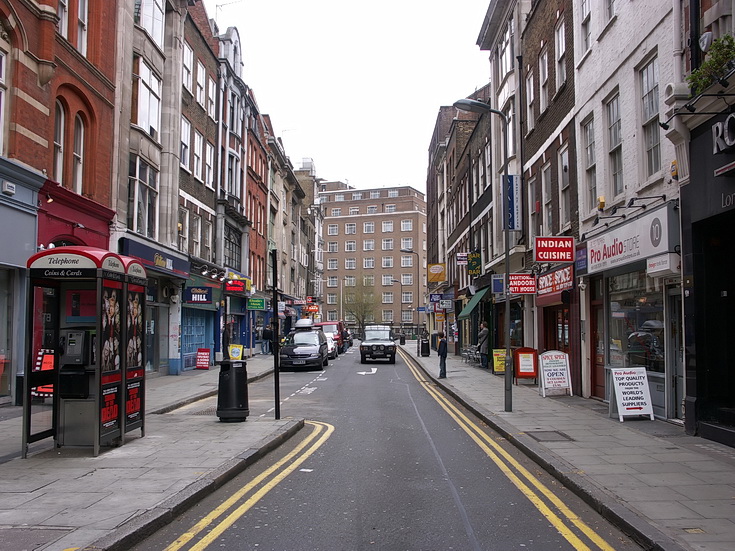
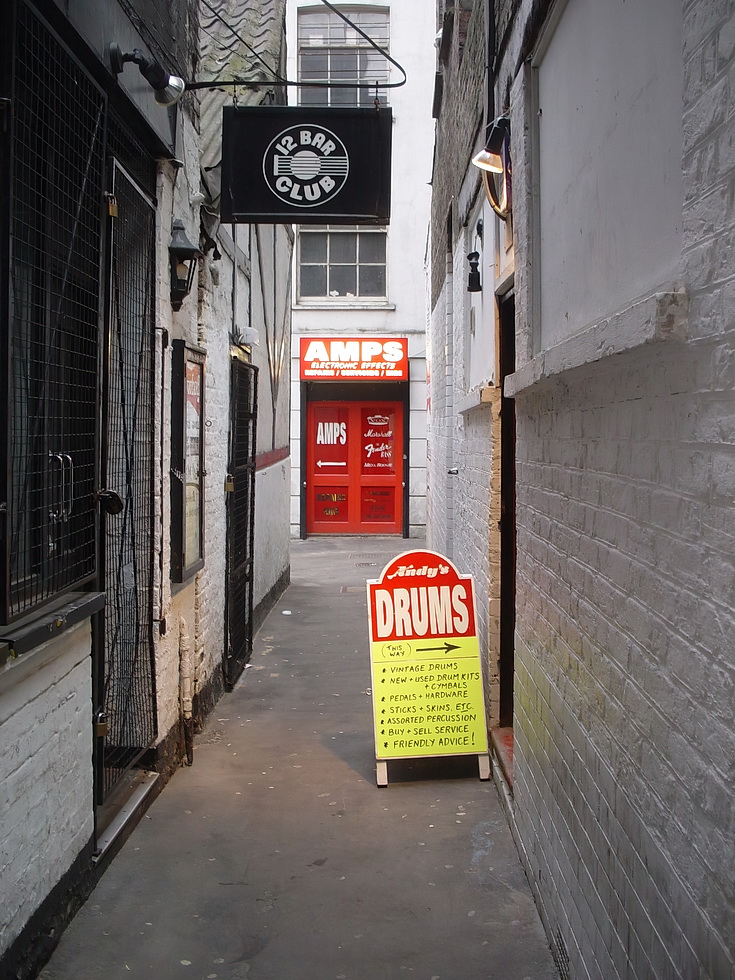
Alley by the 12 Bar.
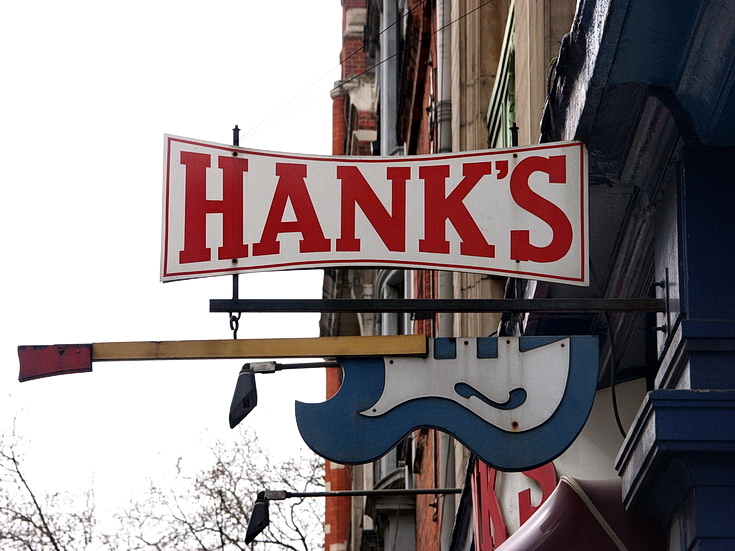
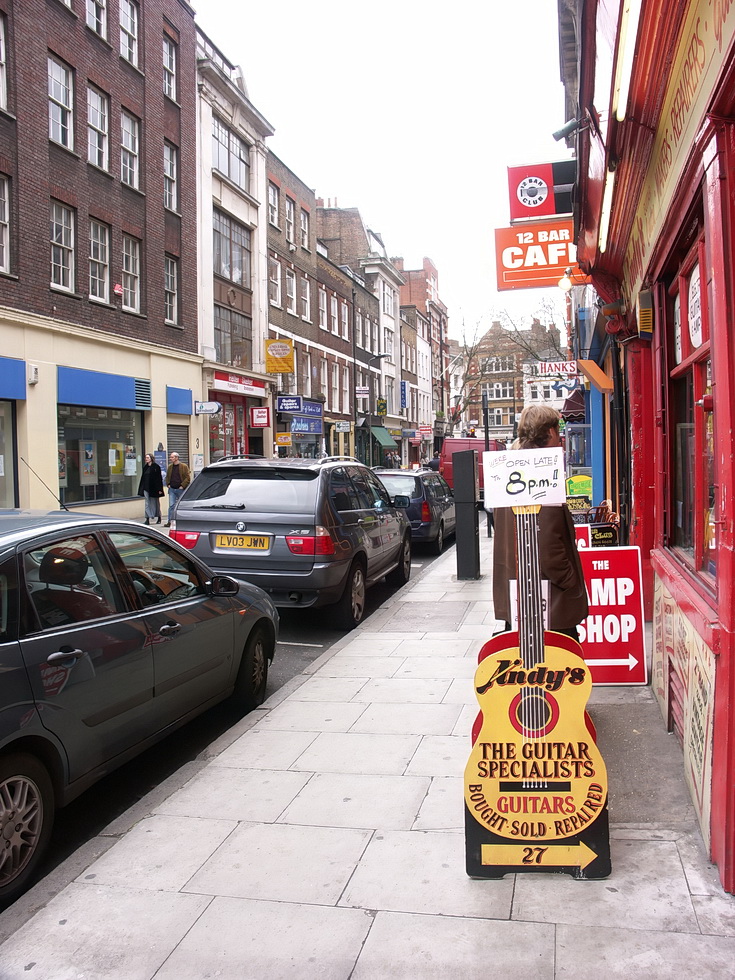
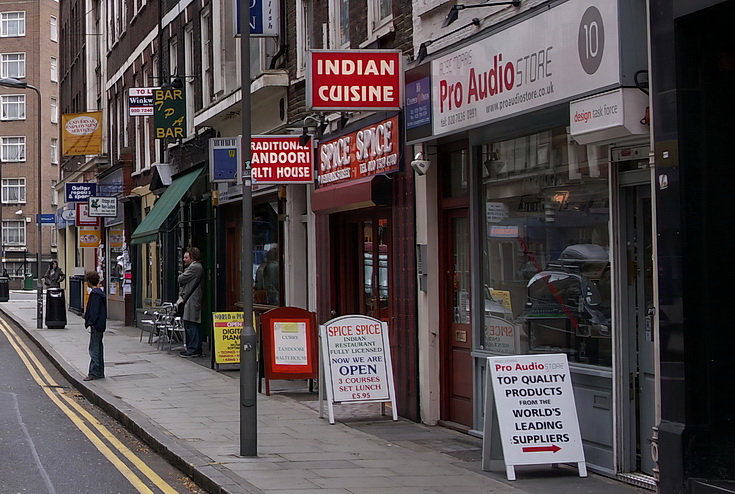
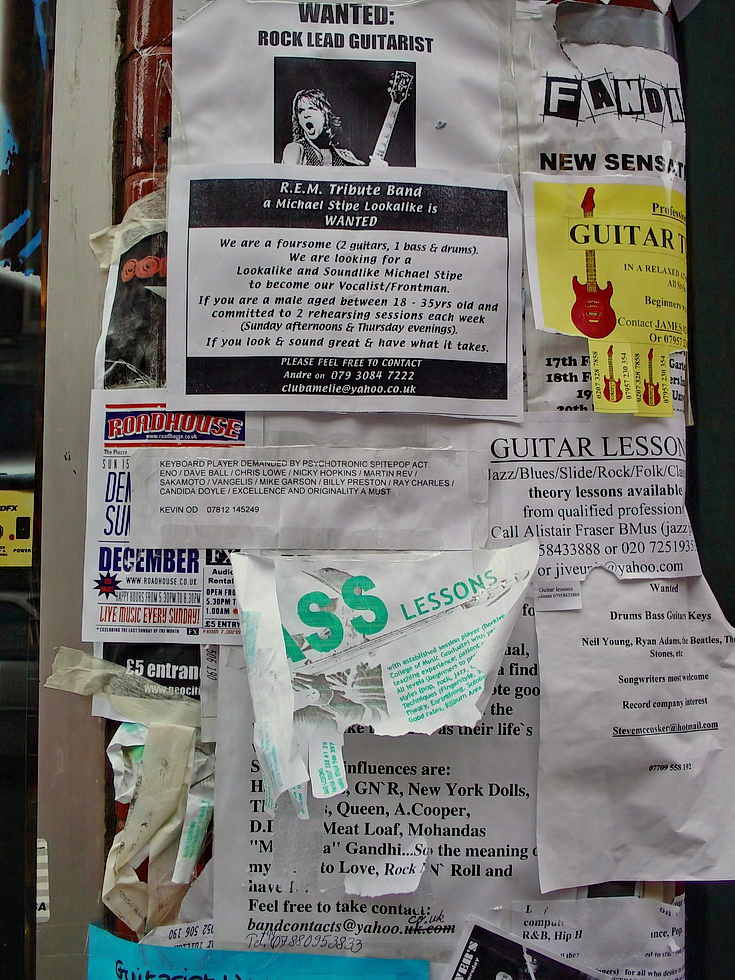
Michael Stipe lookalike needed!
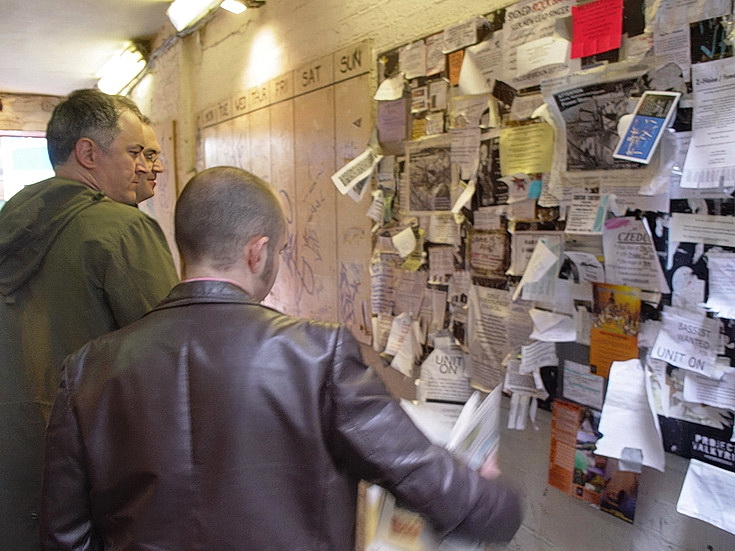
Looking for musicians.
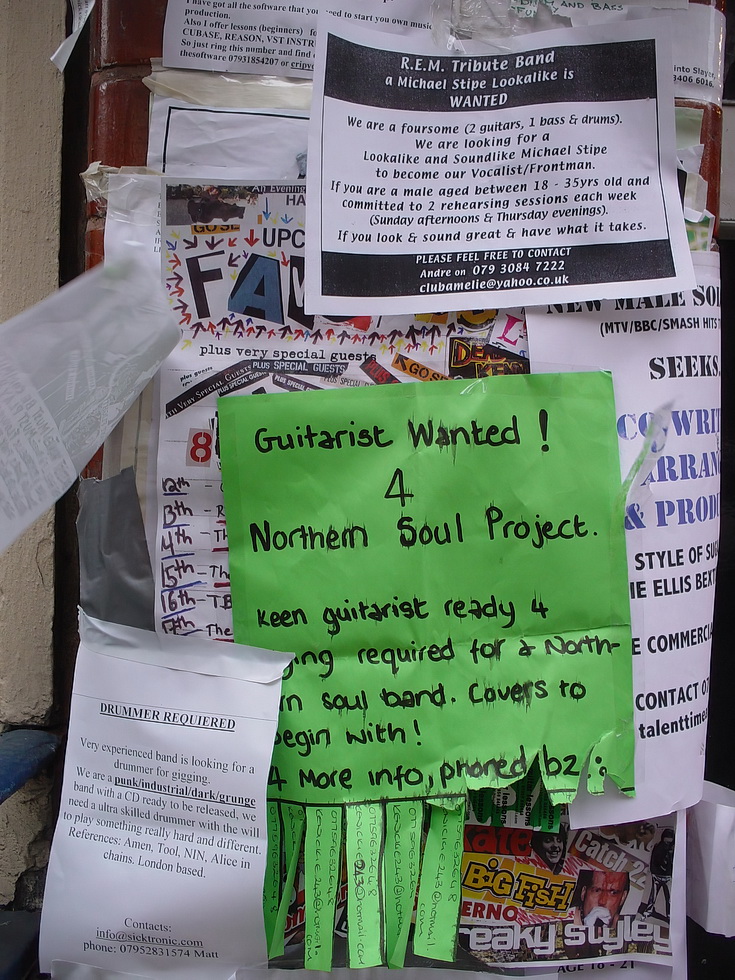
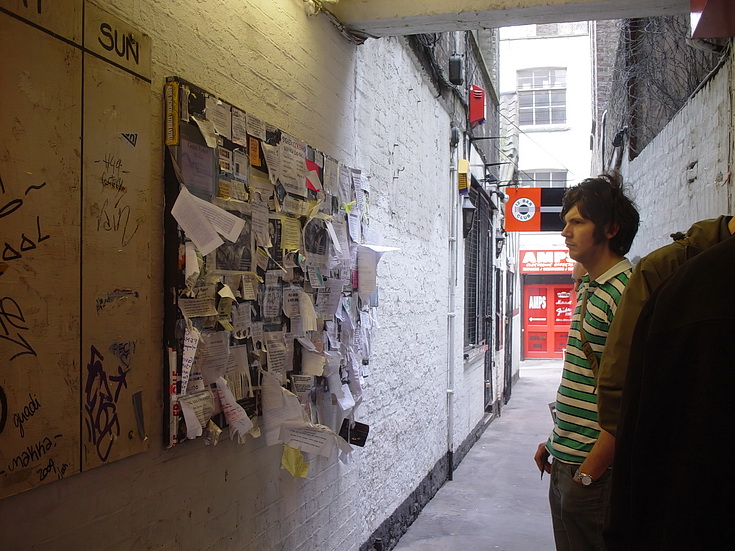
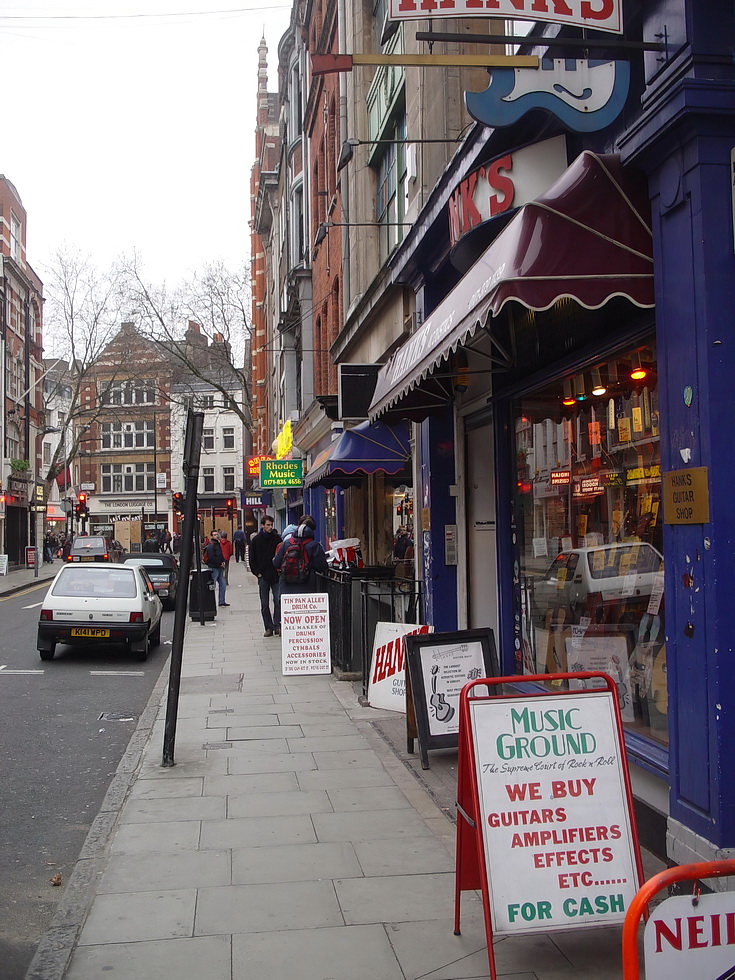
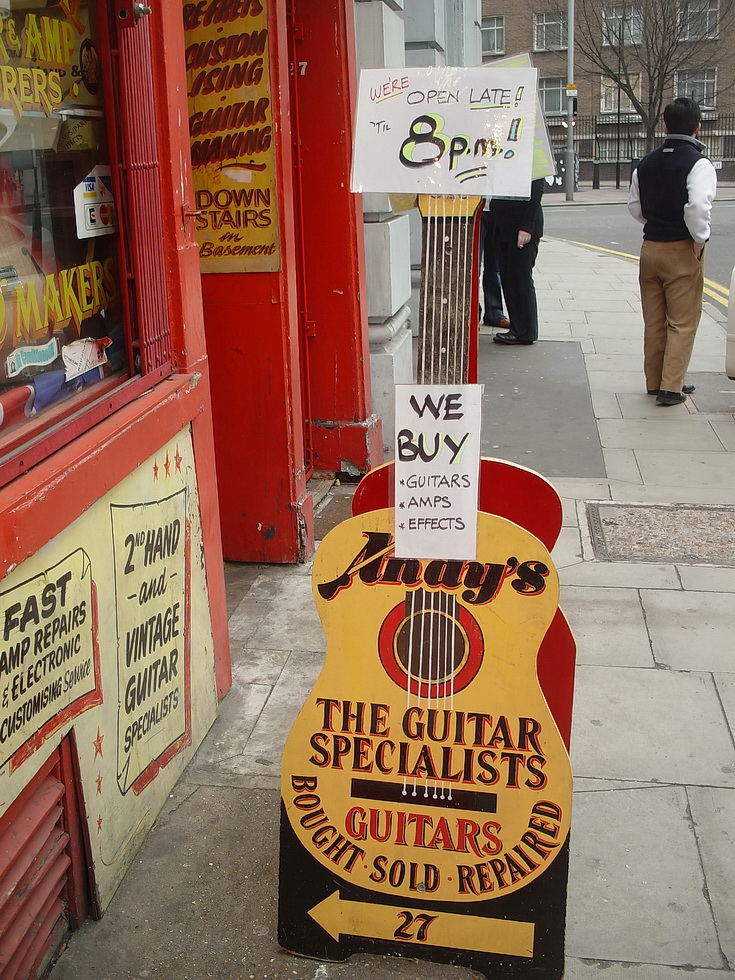
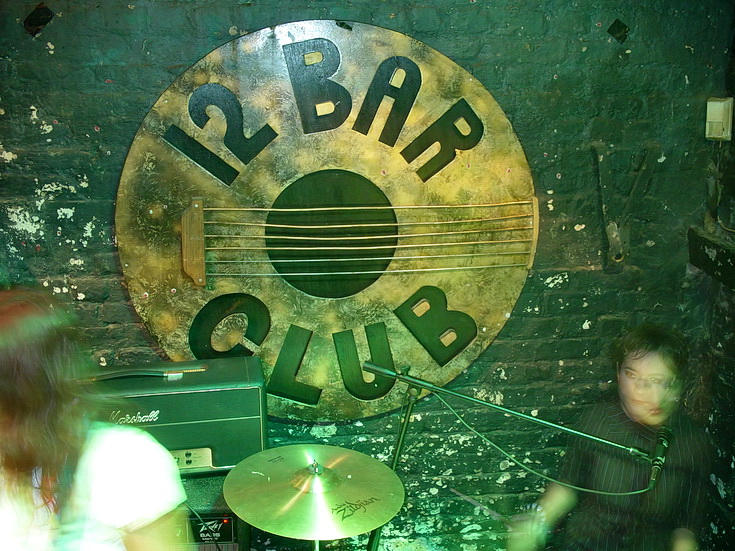
Inside the 12 bar Club. The venue boasted that they hosted an average of four acts a night, seven nights a week.
Wikipedia noted:
The original building was originally constructed in 1635 as a stable. It was later converted into a forge for the St Giles area that was used until World War I. (The fireplace from the forge could be seen at the rear of the stage and regularly housed the performers’ guitar amplifiers.
The Denmark Street venue officially closed 16 January 2015 as part of a redevelopment for the area, despite a lengthy battle to keep it open. Shortly after its closure, activists occupied the building and re-opened it to live music.
Property owners attempted to evict the activists. The club relocated to Islington, shutting for good a year later.
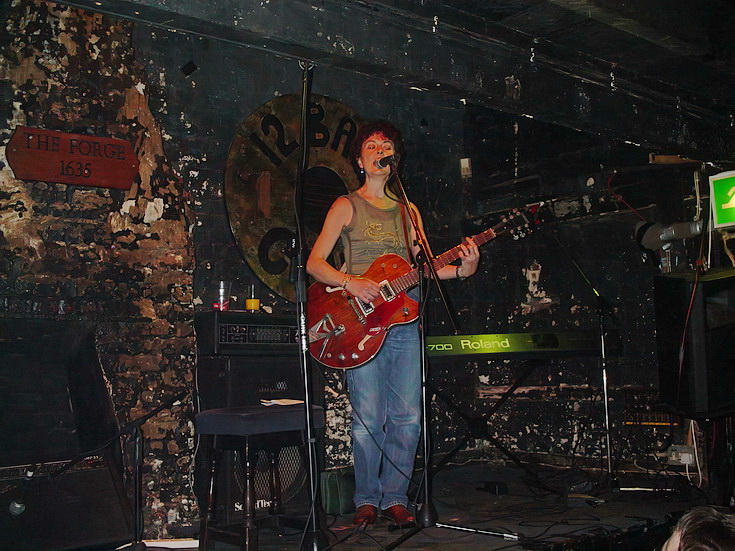
Old pal Helen McCookeryBook on stage.
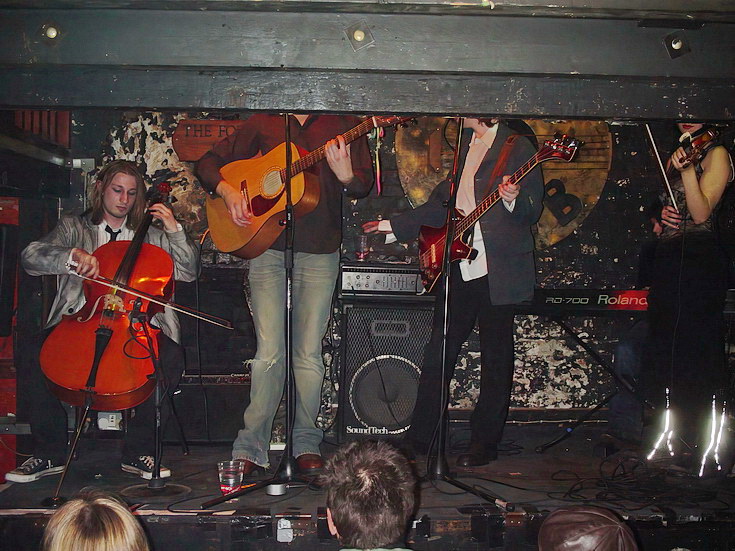
The small venue had a very low roof, so unless you went to the front of the stage you’d only see performing torsos.
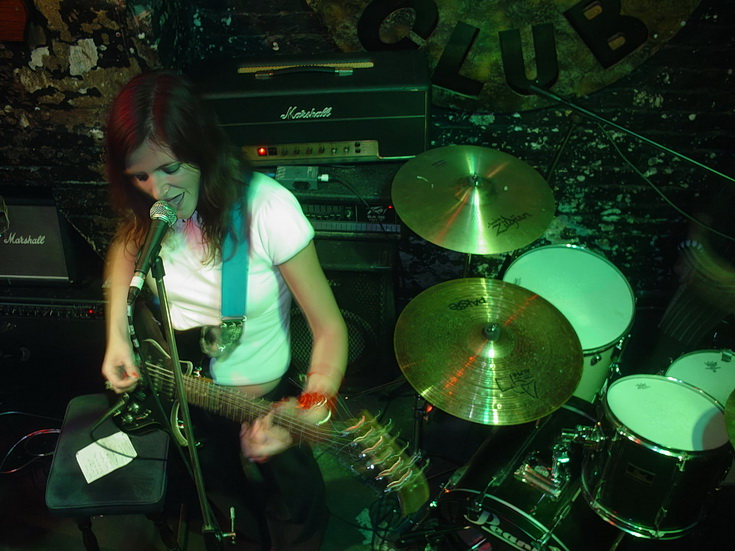
Looking down from the small upstairs area.
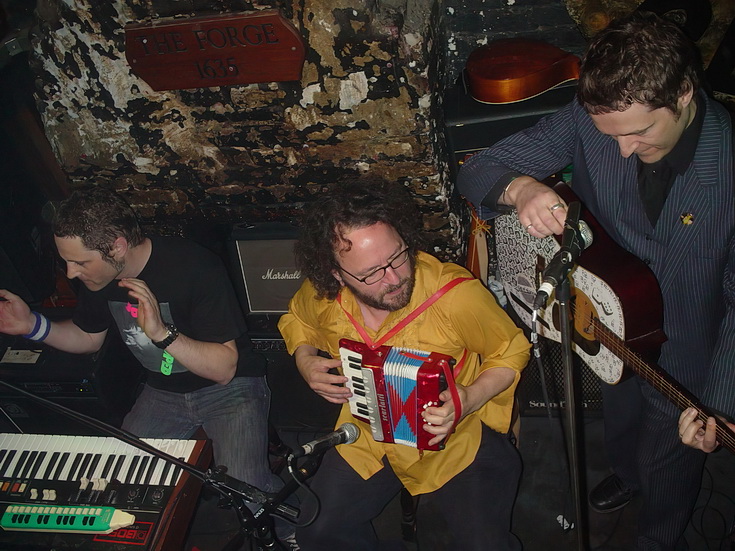
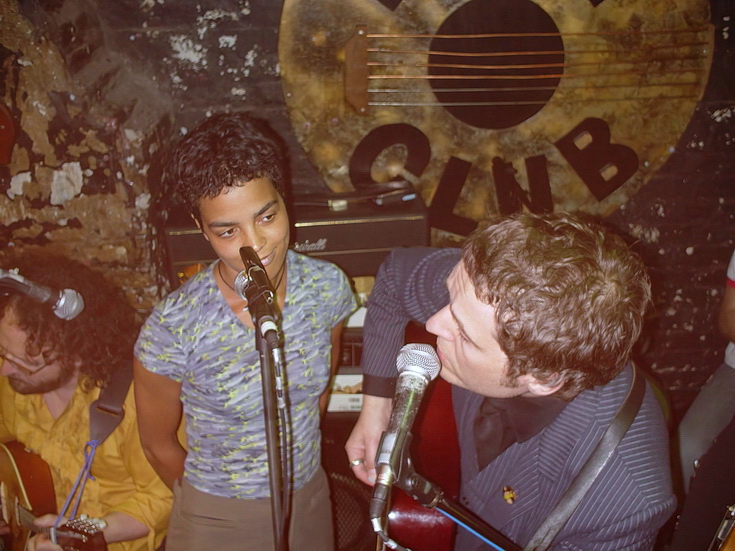
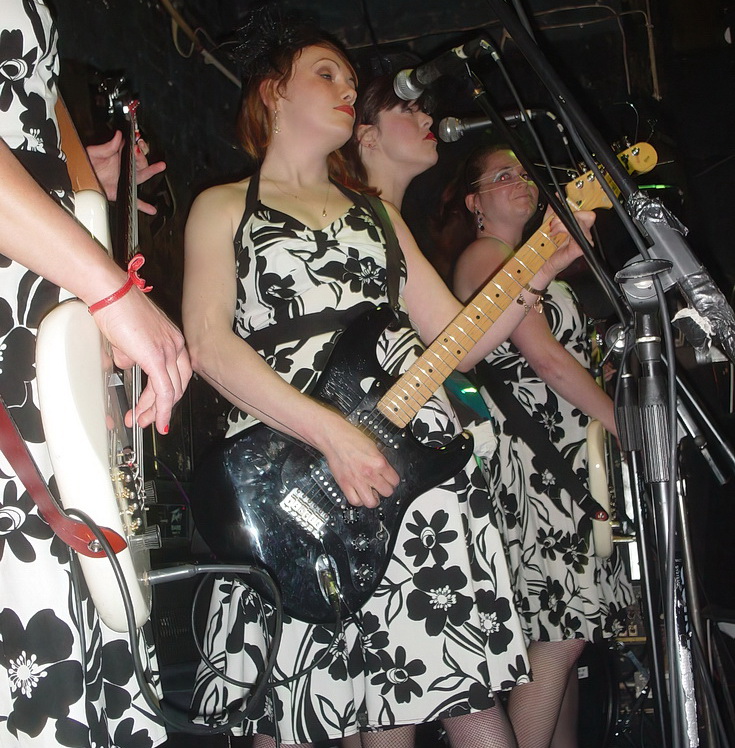
Join the discussion
Background
- Lost London: photos of The Astoria, 12 Bar Club, Denmark St and street scenes, Nov 2008
- Denmark Street, 12 Bar Club & The Astoria, Soho, London in April 2004
- Goodbye to the Crobar, one of the last of the central London rock’n’roll bars
- Petition launched to save the 12 Bar Club and London’s Tin Pan Alley from developers
- Fat White Family headline the Antifolk Festival at Soho’s fabulous 12 Bar venue
- We love the 12 Bar Club, London
- Ten Years Ago: London’s Astoria Theatre closes for good, Jan 2009 – in photos

